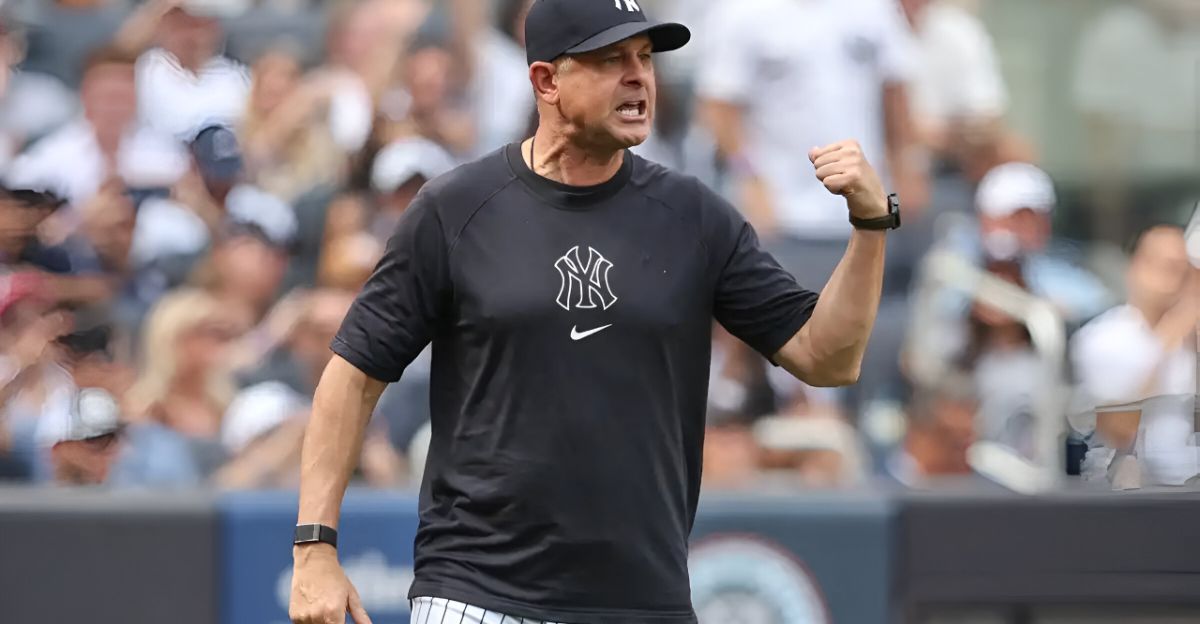
Yankees manager Aaron Boone stunned fans when he benched Jazz Chisholm Jr. for Game 1 of the American League Wild Card Series against Boston. Chisholm had just completed a 30-30 season, yet Boone turned instead to Amed Rosario.
The Yankees dropped the opener 3-1, and the move immediately drew backlash. As ESPN noted, the decision set the tone for a night where analytics seemed to outweigh instinct.
A Milestone Season Overshadowed by the Bench
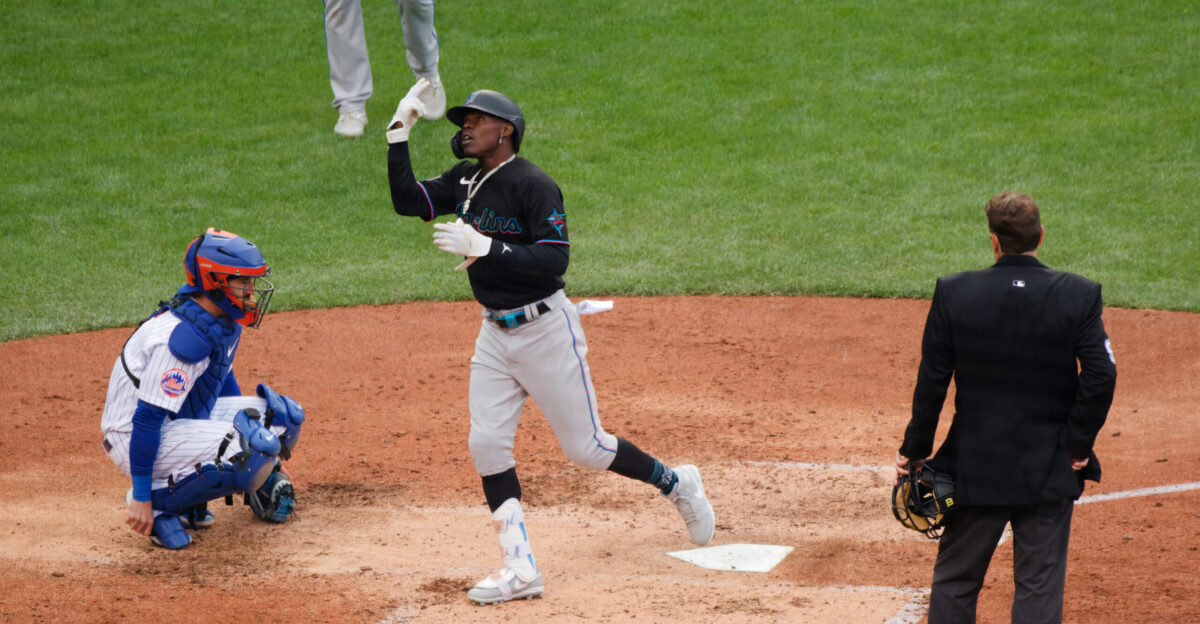
Chisholm became only the third Yankee in history to record 30 homers and 30 steals, joining Bobby Bonds and Alfonso Soriano. Despite missing nearly a month with an oblique strain, he finished with 31 home runs and 31 stolen bases.
According to Baseball Reference, his numbers placed him among the league’s elite. That résumé, fans argued, made his absence in the opening lineup especially puzzling.
Boone Explains the Matchup Call
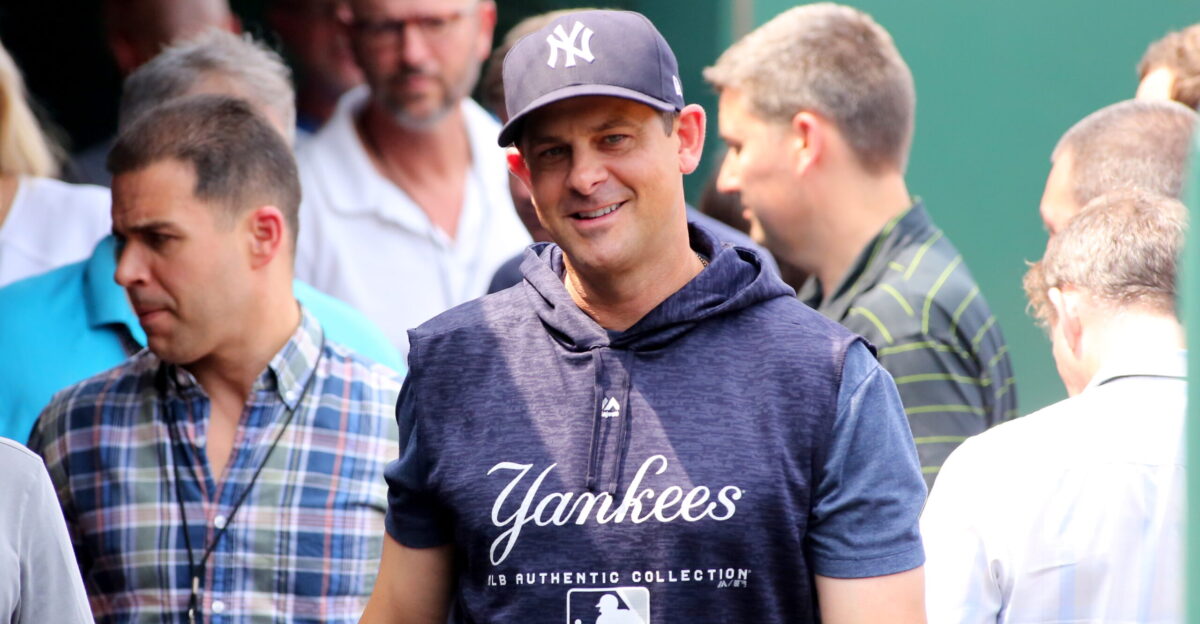
Boone told reporters he leaned on Rosario’s track record against Boston’s left-handed ace, Garrett Crochet. Rosario was 6-for-9 lifetime against him with a home run, while Chisholm hit just .248 against lefties this season.
“It’s about putting guys in the best position to succeed,” Boone said before the game. His reasoning, while statistically sound, failed to quiet questions about whether data was being prioritized over trust.
Former Yankee Blasts the Decision
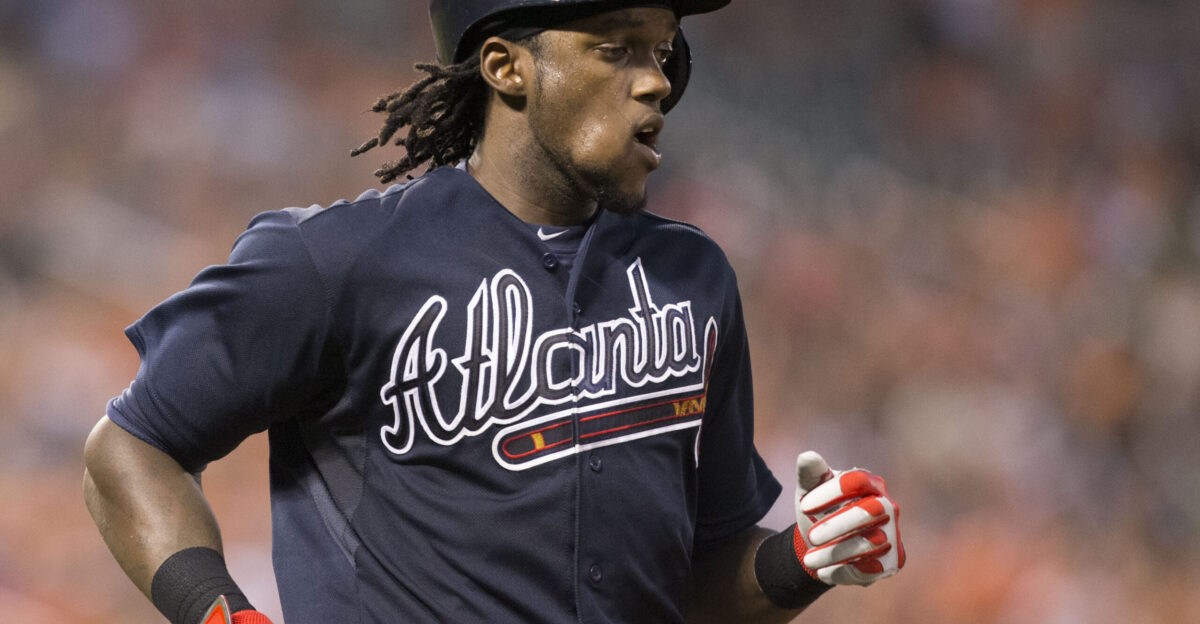
Former Yankees outfielder Cameron Maybin made his displeasure clear on social media, calling the move unacceptable. “The man just had a 30-30 season and then gets treated like a platoon player,” Maybin wrote.
His comments echoed the sentiment of many fans, who believed benching a star for October’s biggest stage sent the wrong message. The criticism highlighted how quickly postseason moves can turn into narratives.
Chisholm Keeps Media Interaction Brief
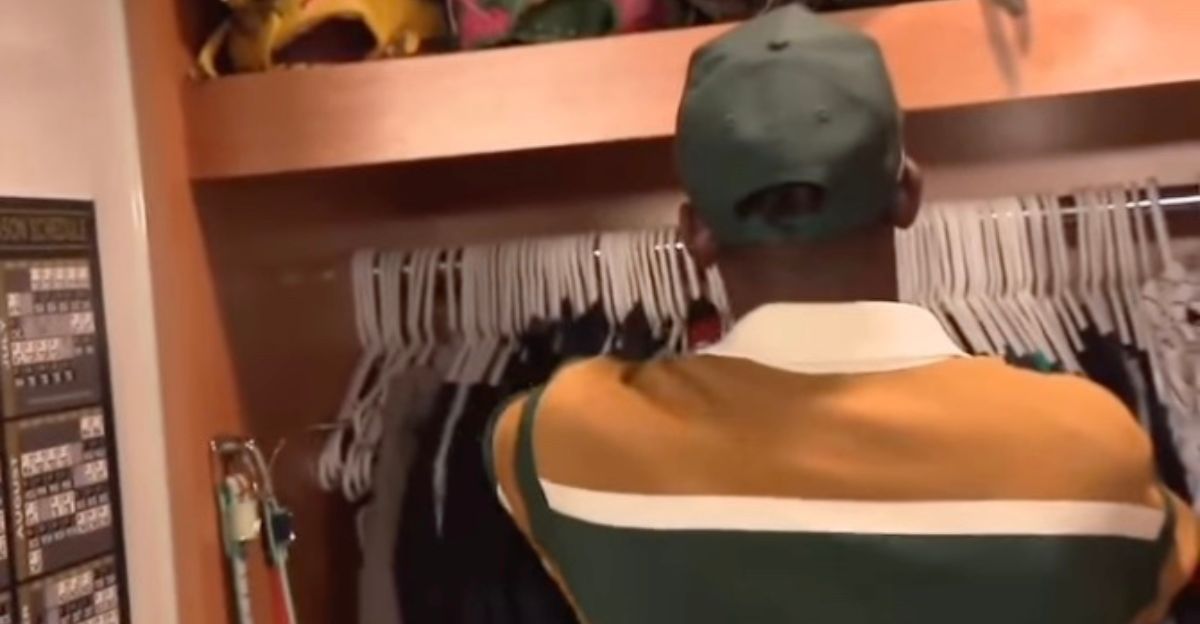
After the loss, Chisholm met with reporters but appeared visibly frustrated. Standing with his back turned, he gave short responses when asked about the benching. “I guess,” he said when asked if he was surprised.
He added there had been “little conversation” about Boone’s decision. According to the New York Post, the brief exchange fueled speculation of deeper tension between manager and player.
Rosario’s Bat Goes Quiet as Plan Backfires
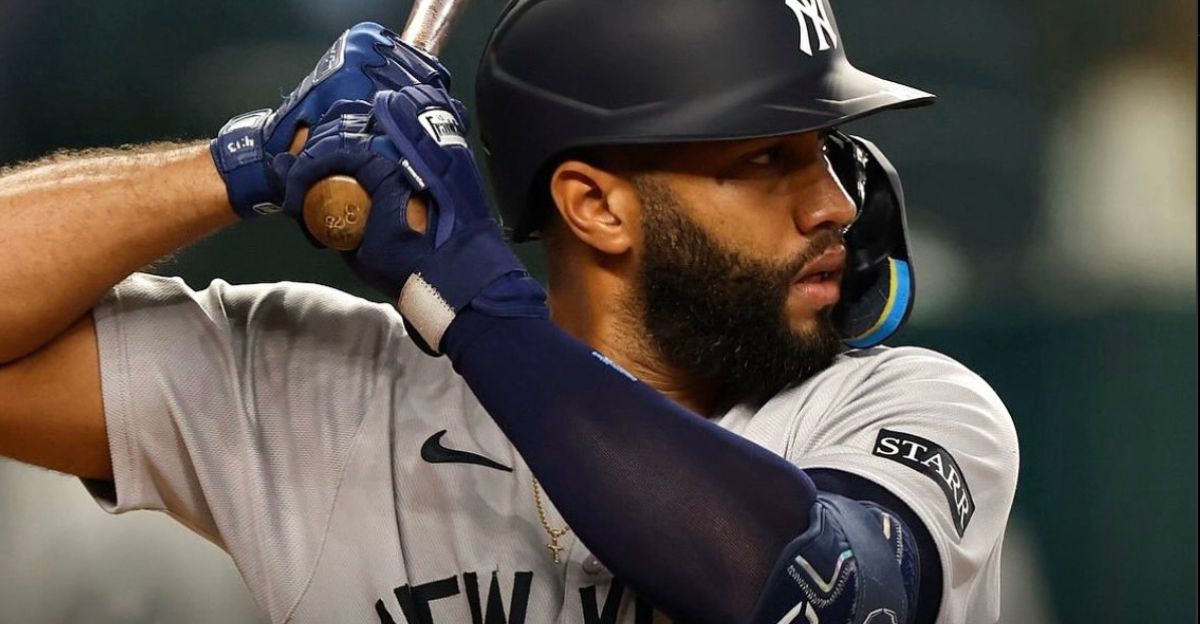
The gamble on Rosario never paid off. He went hitless in three at-bats against Crochet, failing to deliver on Boone’s matchup logic. Chisholm entered late as a defensive replacement and was thrust into a critical ninth-inning at-bat with the bases loaded against closer Aroldis Chapman. According to MLB.com’s recap, he struck out, ending the rally and cementing the criticism of Boone’s plan.
Pitching Change Adds to Criticism
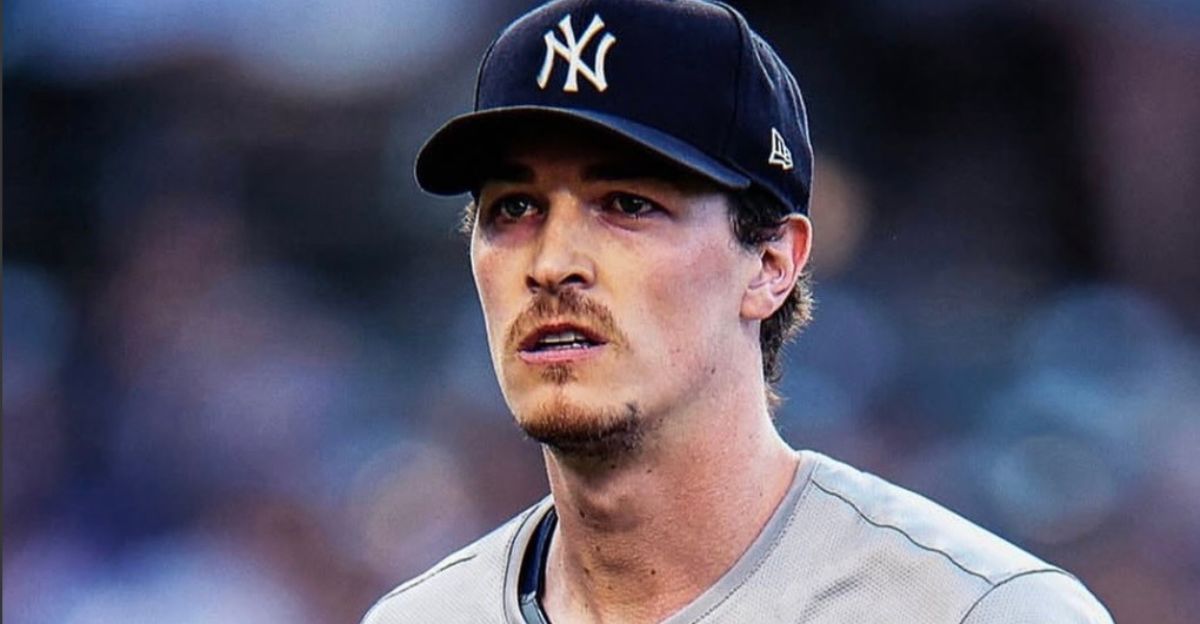
Boone’s bullpen management drew further scrutiny. He pulled Max Fried after 6⅓ scoreless innings, even though Fried had allowed just four hits on 102 pitches. “That was the plan,” Boone said afterward, defending the choice.
But reliever Luke Weaver quickly gave up a two-run single to Masataka Yoshida. ESPN analysts noted the sequence as another example of October overmanaging that undermined a strong starter’s rhythm.
Chisholm’s Road to 30-30 Wasn’t Easy
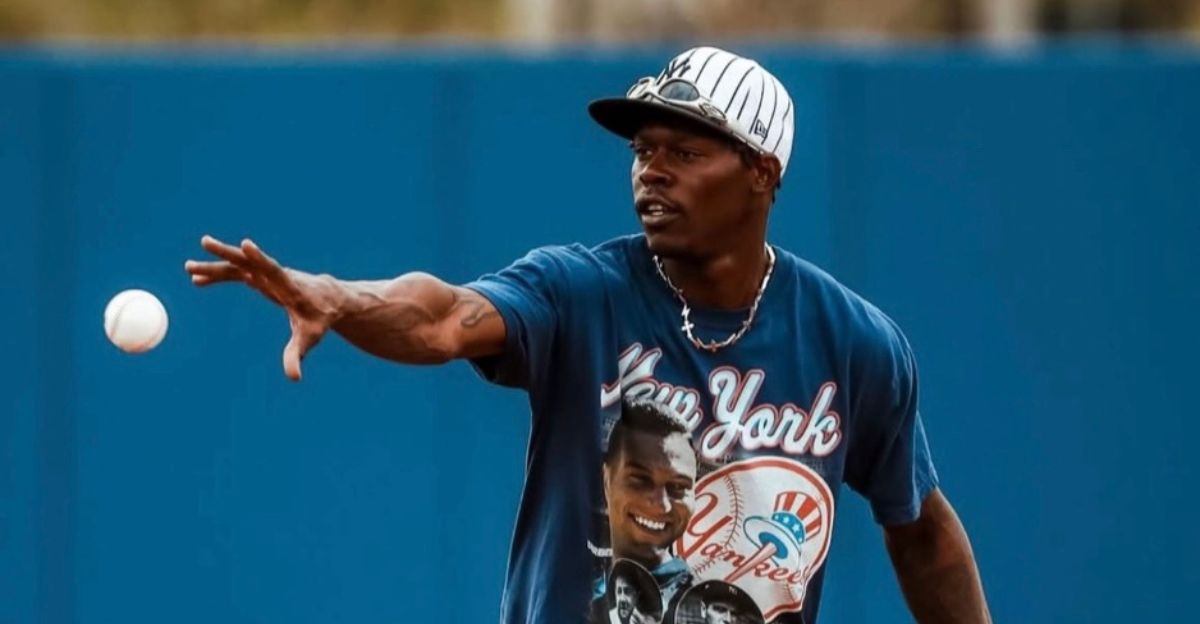
Chisholm’s season was defined by resilience. He missed 28 games with an oblique strain and played through a groin issue that limited his base-stealing for weeks. Yet he still delivered career highs across home runs, RBIs, and walks.
Baseball Reference said he became only the 45th player in MLB history to record a 30-30 season, making the benching feel even more questionable to observers.
The Historic 30th Home Run
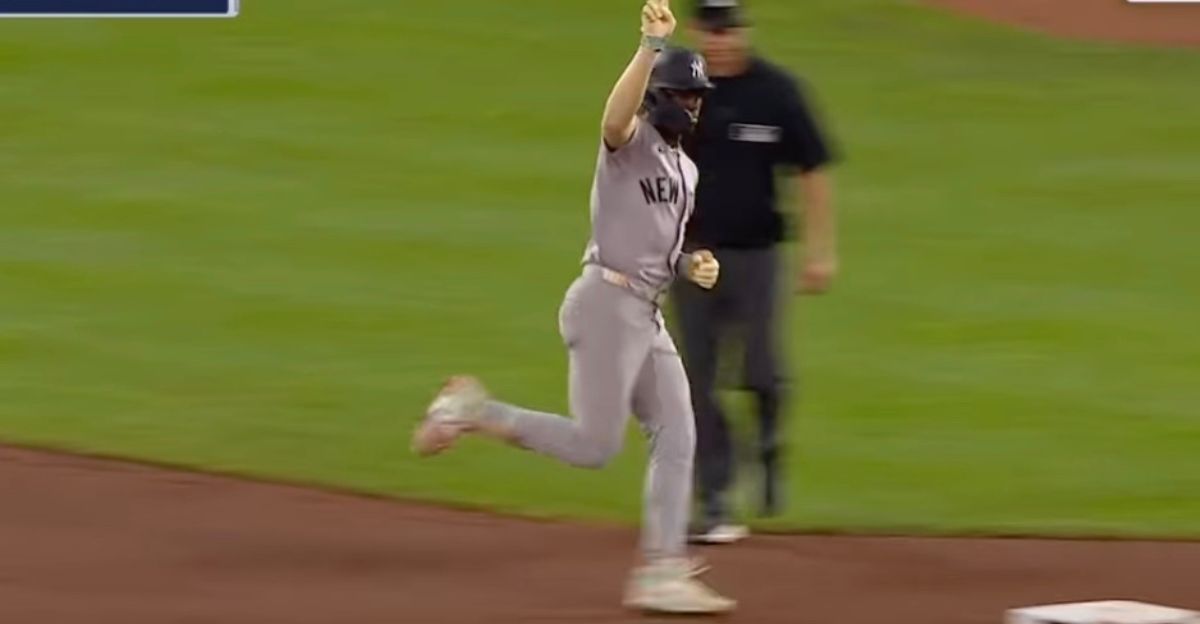
Chisholm’s milestone moment came on September 19 against Baltimore pitcher Dietrich Enns. “I wish it would have come with a win,” he said after the game, per the Associated Press. The comment reflected how team outcomes mattered more to him than personal milestones.
That perspective highlighted the sting of being sidelined in October despite achieving something a Yankee hadn’t done in decades.
Boone Stands By His Call

Facing mounting questions, Boone defended his reasoning before Game 2. “Every player is not going to agree with every decision that I make,” he told reporters. He reiterated that Rosario’s history against Crochet influenced the plan.
While acknowledging Chisholm’s frustration, Boone insisted his focus was always on team matchups. According to ESPN, the manager’s defense sounded logical but didn’t quiet the growing skepticism among analysts and fans.
Analytics vs. Baseball Instinct
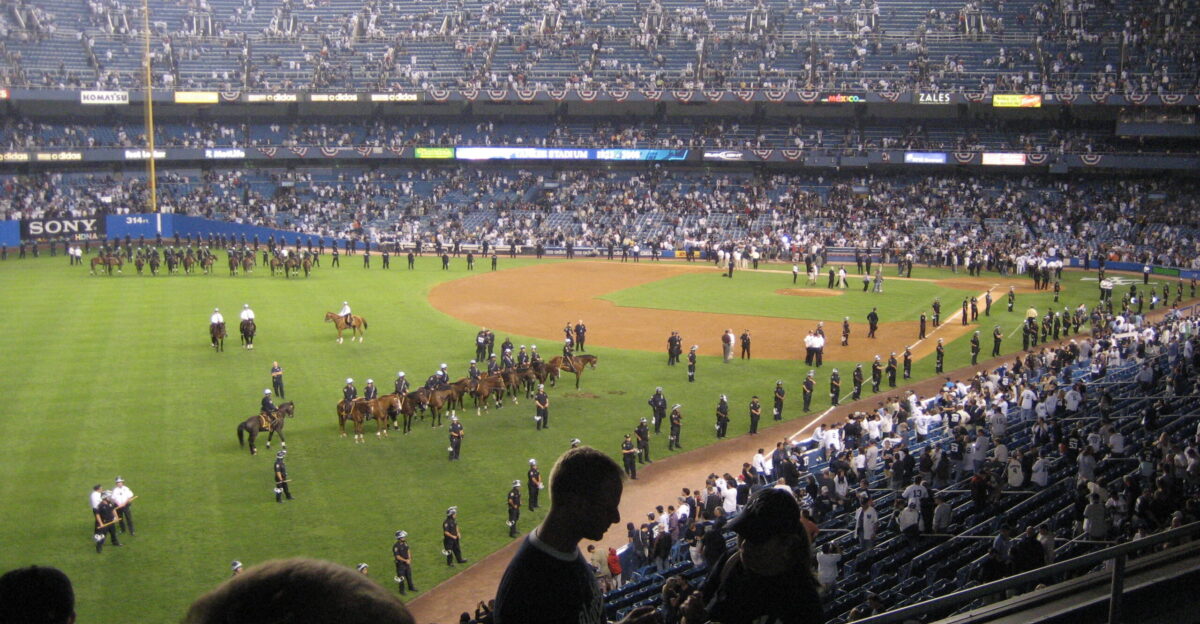
The incident reignited debate about the Yankees’ reliance on analytics. Joel Sherman of the New York Post argued Boone appeared “preprogrammed,” suggesting the team leaned too heavily on numbers instead of reading the flow of a playoff game.
Many insiders pointed out that while analytics matter, postseason baseball often rewards managers who trust instincts and ride momentum. The decision became a case study in that tension.
Chisholm’s Splits Paint a Fuller Picture
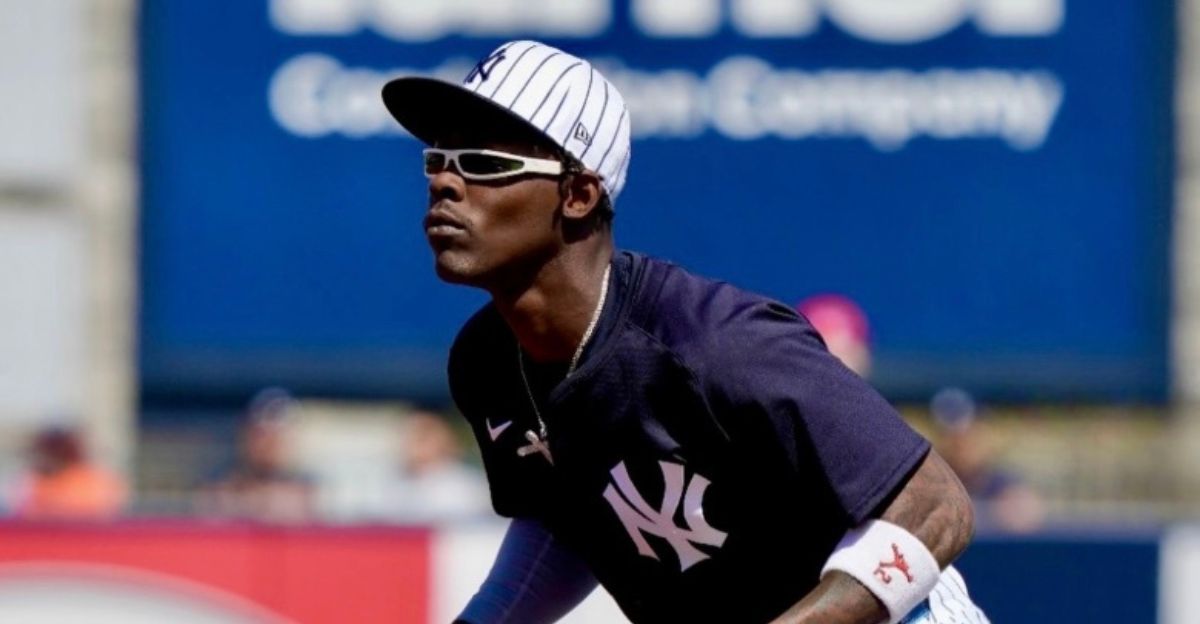
Chisholm wasn’t as weak against lefties as some believed. He posted a .733 OPS against southpaws in 2025, with consistent power. According to Statcast data, his hard-hit rate remained strong regardless of handedness.
Those numbers suggested that his overall offensive threat held value while his batting average dipped. Analysts noted that sitting him overlooked the intangibles and energy he brought to the Yankees’ lineup all season.
Missed Ninth-Inning Opportunity Stings
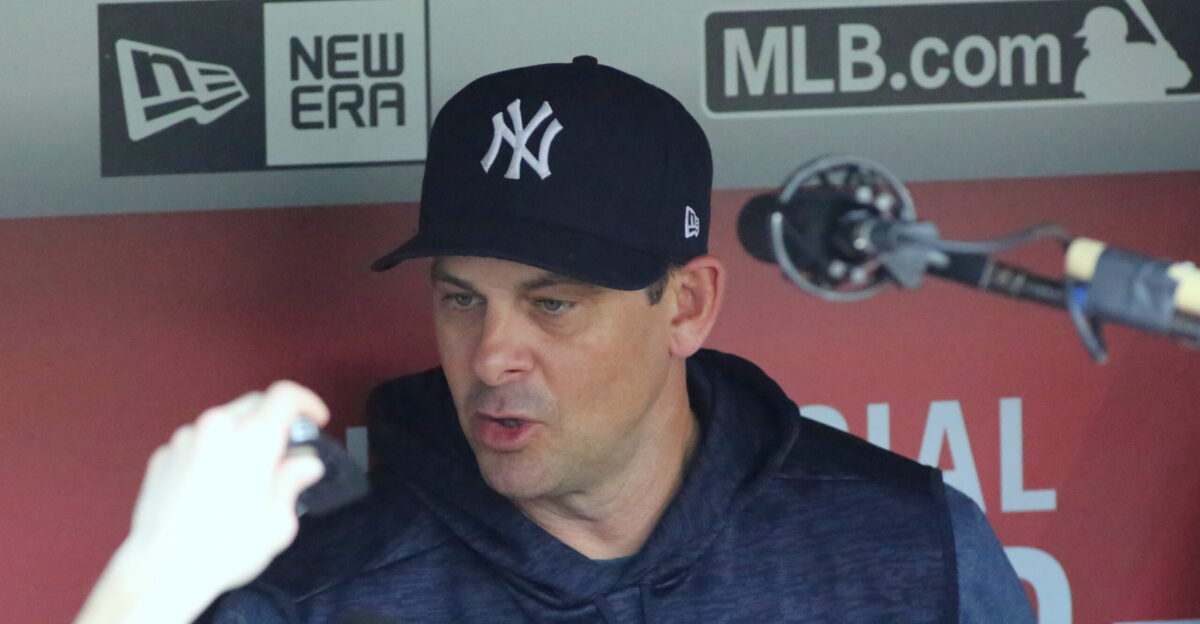
The Yankees’ best chance in Game 1 came in the ninth with the bases loaded and no outs. Chisholm, entering cold, struck out against Chapman in a tense showdown. “That was a tough spot to walk into,” Boone admitted later.
Analysts pointed out that if Chisholm had been starting, he might have been better prepared for such a moment, potentially changing the game’s outcome.
Boone Admits to Second-Guessing
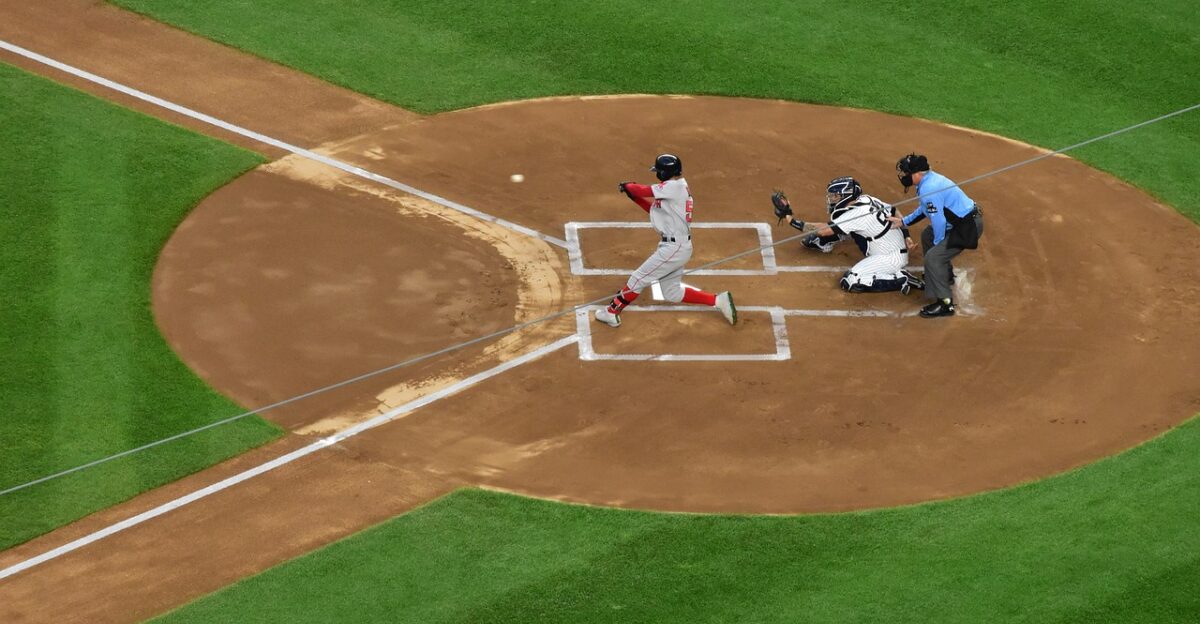
After the game, Boone conceded that he questioned some of his late substitutions. “Should I have kept Rosario in?” he said when asked about the defensive swap. According to the YES Network broadcast, Boone reflected on the challenge of balancing strategy with flow.
His honesty didn’t shield him from criticism, but it revealed the weight managers feel when every October choice is magnified under the spotlight.
Cora Shows Trust in Crochet
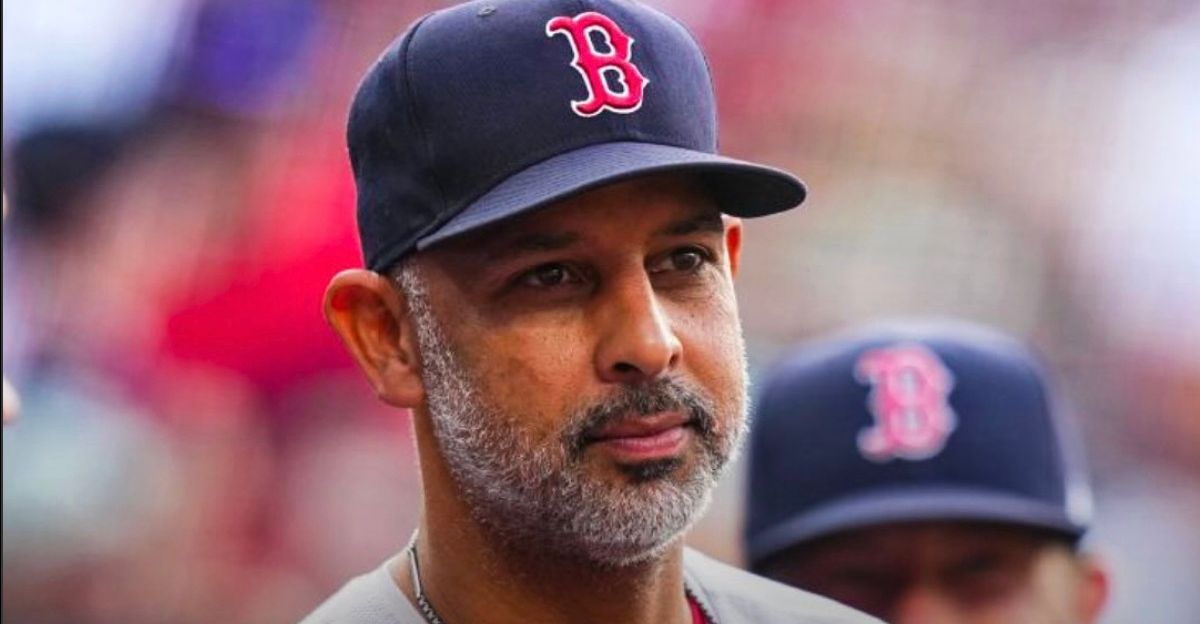
Boston manager Alex Cora provided a sharp contrast in philosophy. He left Crochet in for 117 pitches through 7⅔ innings, trusting his ace to work out of jams. “That’s why we believe in him,” Cora told reporters. Crochet rewarded the faith with 11 strikeouts.
According to MLB.com, the managerial contrast—Cora’s trust versus Boone’s quick hook—highlighted how styles can define October outcomes.
Chisholm Returns for Game 2
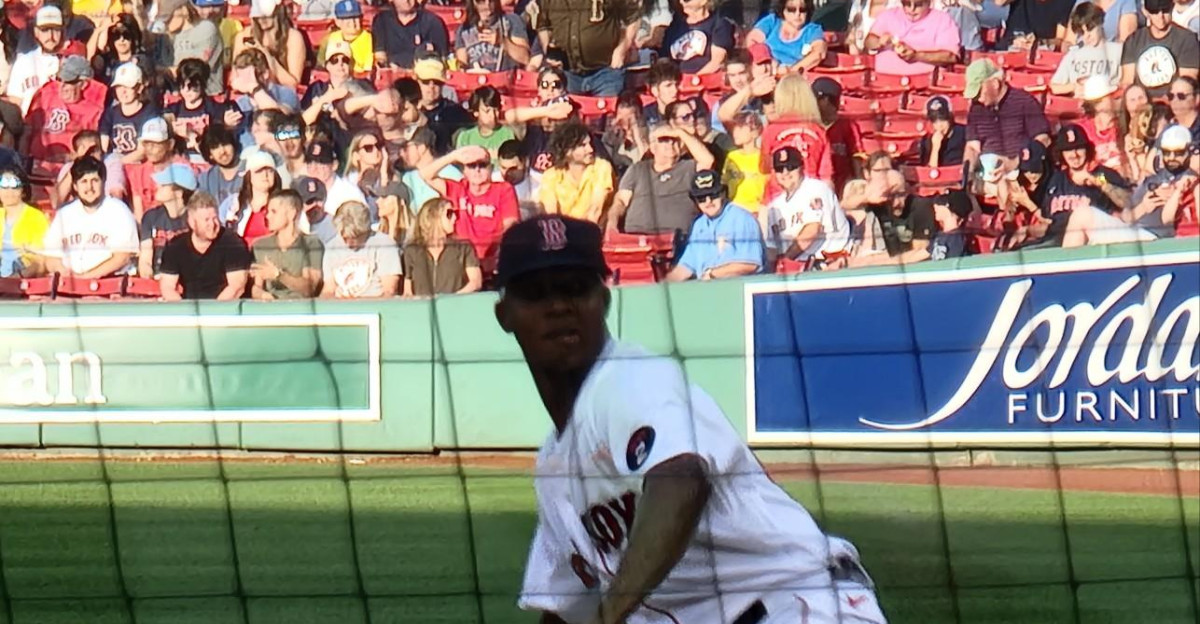
Boone reinserted Chisholm into the lineup for Game 2 against right-hander Brayan Bello, penciling him into the sixth spot. “I think Jazz is going to be ready,” Boone said before the first pitch.
The move was seen as both tactical and a nod to player morale. According to the New York Times, the adjustment aimed to recapture momentum and calm criticism before the series slipped further.
Finding Relief Through “The Show”

Chisholm explained that he dealt with the benching stress by playing the video game MLB The Show. His custom team, the New York Aliens, cruised to a 12-1 win.
“That’s how I get my stress off,” he told MLB.com, adding that his virtual roster is “kind of a cheat code.” The lighthearted admission gave fans a rare personal glimpse into his off-field personality.
Rookie Connelly Early Gets Game 3 Start
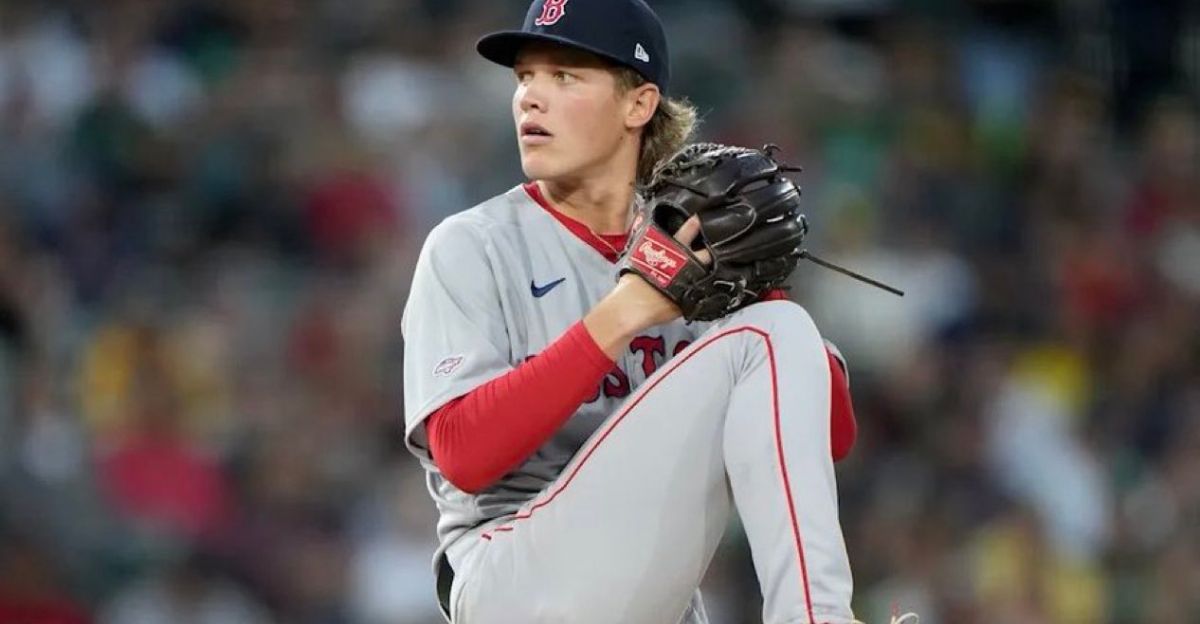
In the decisive Game 3, Boston turned to rookie left-hander Connelly Early. His assignment highlighted Boston’s reliance on youth in high-stakes moments. Boone, meanwhile, adjusted his lineup accordingly.
According to the Boston Globe, Early’s start surprised some observers but reflected the Red Sox’s pitching depth. The matchup against New York’s right-heavy lineup added another wrinkle to a series already dominated by managerial decisions.
Yankees Clinch Behind Rookie Schlittler
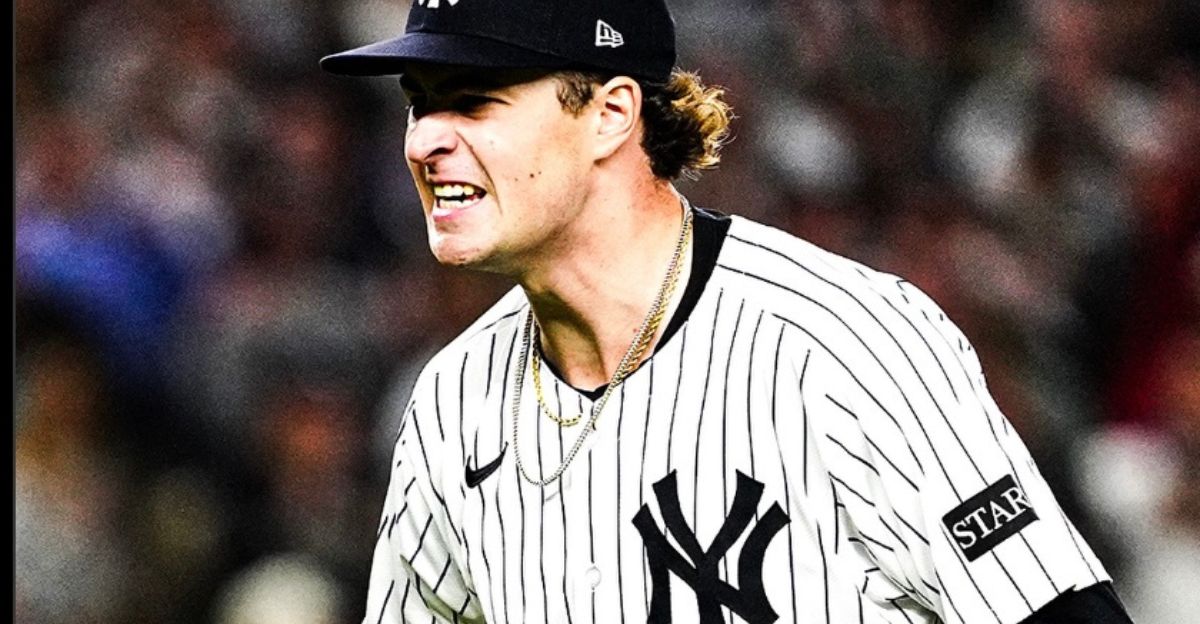
The Yankees responded in Game 3 with rookie Cam Schlittler delivering eight shutout innings. Reuters described his outing as “dominant under pressure,” neutralizing Boston’s offense and silencing Fenway Park.
New York’s 5-0 win secured the series 2-1, making them the first team under the current Wild Card format to lose Game 1 and still advance. The victory flipped the narrative and validated mid-series adjustments.
Chisholm and Boone Reaffirm Respect
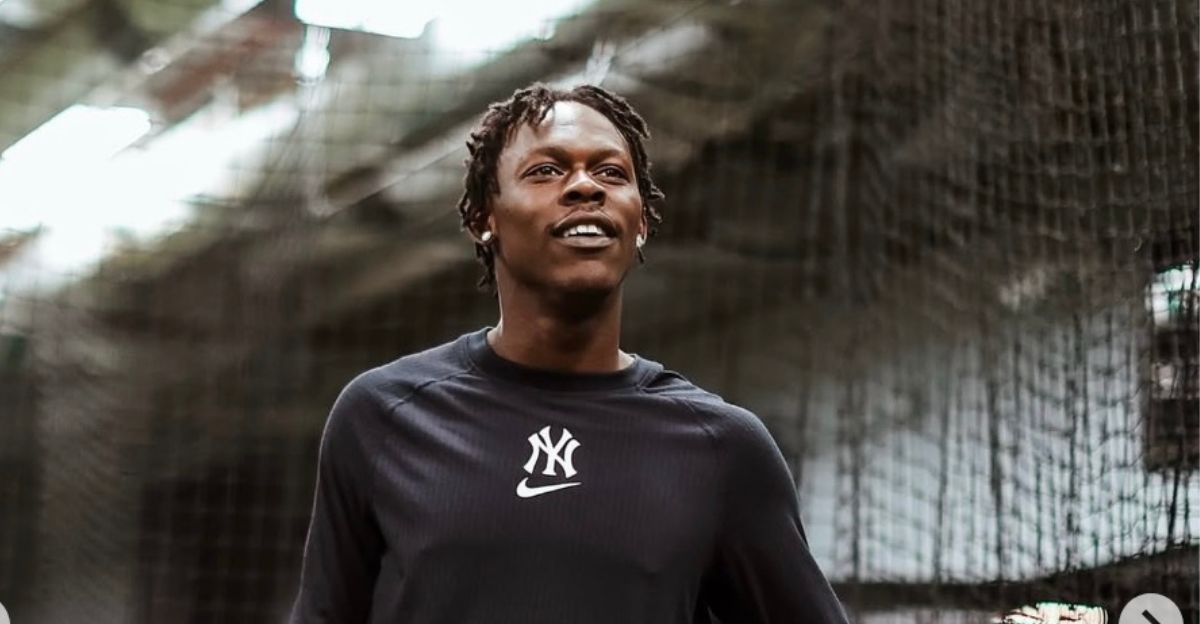
Despite the uproar, Chisholm made it clear there was no personal rift. “There is never a problem between me and Aaron Boone,” he told reporters after Game 2.
“At the end of the day, I always stand with Boonie because he always understands where I come from.” According to the Associated Press, the comments reassured fans that the controversy hadn’t fractured clubhouse chemistry heading into the ALDS.